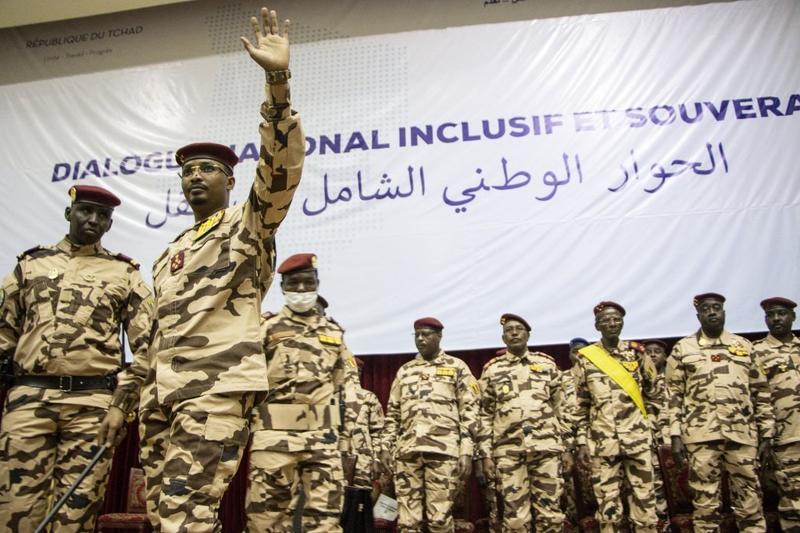 Transition President Mahamat Idriss Deby Itno (second left) gestures during the opening ceremony of the national dialogue at the Jan 15 Palace in N'Djamena, on Aug 20, 2022. (AURELIE BAZZARA-KIBANGULA / AFP)
Transition President Mahamat Idriss Deby Itno (second left) gestures during the opening ceremony of the national dialogue at the Jan 15 Palace in N'Djamena, on Aug 20, 2022. (AURELIE BAZZARA-KIBANGULA / AFP)
N'DJAMENA - Chad has adopted resolutions that push back elections by two years and allow interim leader Mahamat Idriss Deby to stay in power and be eligible to run for president in the eventual vote.
The military authorities originally promised an 18-month transition to elections when Deby seized power in April 2021 after his father, President Idriss Deby, was killed on the battlefield during a conflict with insurgents.
Under the new plan, approved on Saturday, the transition that was due to end this October has been extended by two years, meaning elections would take place around October 2024
Under the new plan, approved on Saturday, the transition that was due to end this October has been extended by two years, meaning elections would take place around October 2024.
It also allows Deby to remain in power until the vote, although his Transitional Military Council will dissolve and be replaced with a transitional government, appointed by Deby.
ALSO READ: Chad, rebels sign peace deal in Qatar ahead of national dialogue
Riven by conflict and drought, around 2 million people face severe food shortages in Chad this year, according to the World Food Programme.
Opposition leader Brice Mbaimong Guedmabaye said the resolutions were forced through during ongoing national talks that the junta had promised would be an inclusive forum to negotiate the path back to democracy.
The national dialogue was billed as a route to a political consensus between the authorities, the political opposition, civil society representatives, and rebel groups, but many have boycotted, including the insurgent group Front for Change and Concord in Chad (FACT) that threatened to march on the capital last year.
Some participants in talks are concerned about the likely international backlash that could isolate Chad and hamper economic development of the oil-producing country, where around 42 percent of the population live below the poverty line, according to the World Bank.
READ MORE: Chad's ruling junta asks Niger to help capture rebel leader
"We fear sanctions from the African Union and the international community, which will just worsen the suffering of the Chadian people," said Daouda Elhadj, who is participating in the talks as head of a consumer protection organization.


